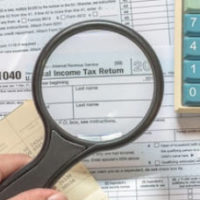The New Opportunity Zone Tax Incentive

The new Opportunity Zone tax incentive was created by last year’s Tax Cuts and Jobs Act and was designed to help drive investment in distressed communities across the nation by providing tax benefits to taxpayers who invest in businesses located in those areas. In June, 8,761 communities were designated as qualified Opportunity Zones, a designation that will remain in place for the next ten years. Those who choose to make an investment in any one of these zones can defer tax on essentially any capital gains until December 31, 2026. To learn more about the Opportunity Zone Tax incentive and how it could affect your own financial situation, please contact a member of our dedicated tax return preparation legal team today for assistance.
How do I Qualify for a Deferral?
The Opportunity Zone tax incentive allows taxpayers to:
- Defer including certain gains when calculating their gross income for the purpose of filing taxes, as long as those corresponding amounts are reinvested in the Qualified Opportunity Fund (QOF); and
- Exclude post-acquisition gains on investments in QOFs that are held for at least ten years from their gross income.
In order to qualify for these deferrals, however, the amount of the capital gain in question must be invested as equity interest in a QOF, which can include ownership of preferred stock or a partnership interest. This means that an eligible interest cannot be a debt instrument. To be eligible, a QOF must also be:
- An entity that is treated as either a corporation or a partnership for federal tax purposes; and
- Organized in one of the 50 states, the District of Columbia, or the five U.S. territories in which Opportunity Zones have been designated for the purpose of investing in qualified property.
The QOF must also hold at least 90 percent of its assets in the qualified Opportunity Zone property before an investor can defer capital gains. However, if a taxpayer can demonstrate that at least 70 percent of the tangible business property it owns or leases constitutes qualified opportunity zone business property, it could still be eligible to defer capital gains taxes.
Who Can Defer Capital Gains?
All taxpayers who recognize capital gains for federal income tax purposes are eligible to elect to defer capital gains taxes, including:
- Individuals;
- C corporations, including RICs and REITs;
- Partnerships; and
- Other Pass-through entities, such as common trust funds, qualified settlement funds, and disputed ownership funds.
What Capital Gains are Eligible for Deferral?
Only certain capital gains are eligible for deferral under this rule, including any gains from the actual sale or exchange of property held by the taxpayer, but only if that gain doesn’t exceed the aggregate amount that was invested by the taxpayer. Furthermore, a capital gain will only qualify for deferral if it would constitute a gain even if deferral were not permitted, and the gain didn’t arise from a sale or exchange of property with a related person. When a capital gain is experienced by a partnership, either the entity or the partners themselves are permitted to elect deferral. The same rules apply to other pass-through entities like estates and trusts and their beneficiaries, or S Corporations and their shareholders.
Call Today to Learn More About Filing Your Taxes
If you believe that you may qualify for the Opportunity Zone tax incentive, please call 386-490-9949 to speak with experienced Florida tax attorney Ronald Cutler, P.A. today.
Resource:
irs.gov/pub/irs-drop/reg-115420-18.pdf
https://www.hotlineforhelp.com/the-tax-repercussions-of-like-kind-exchanges/
